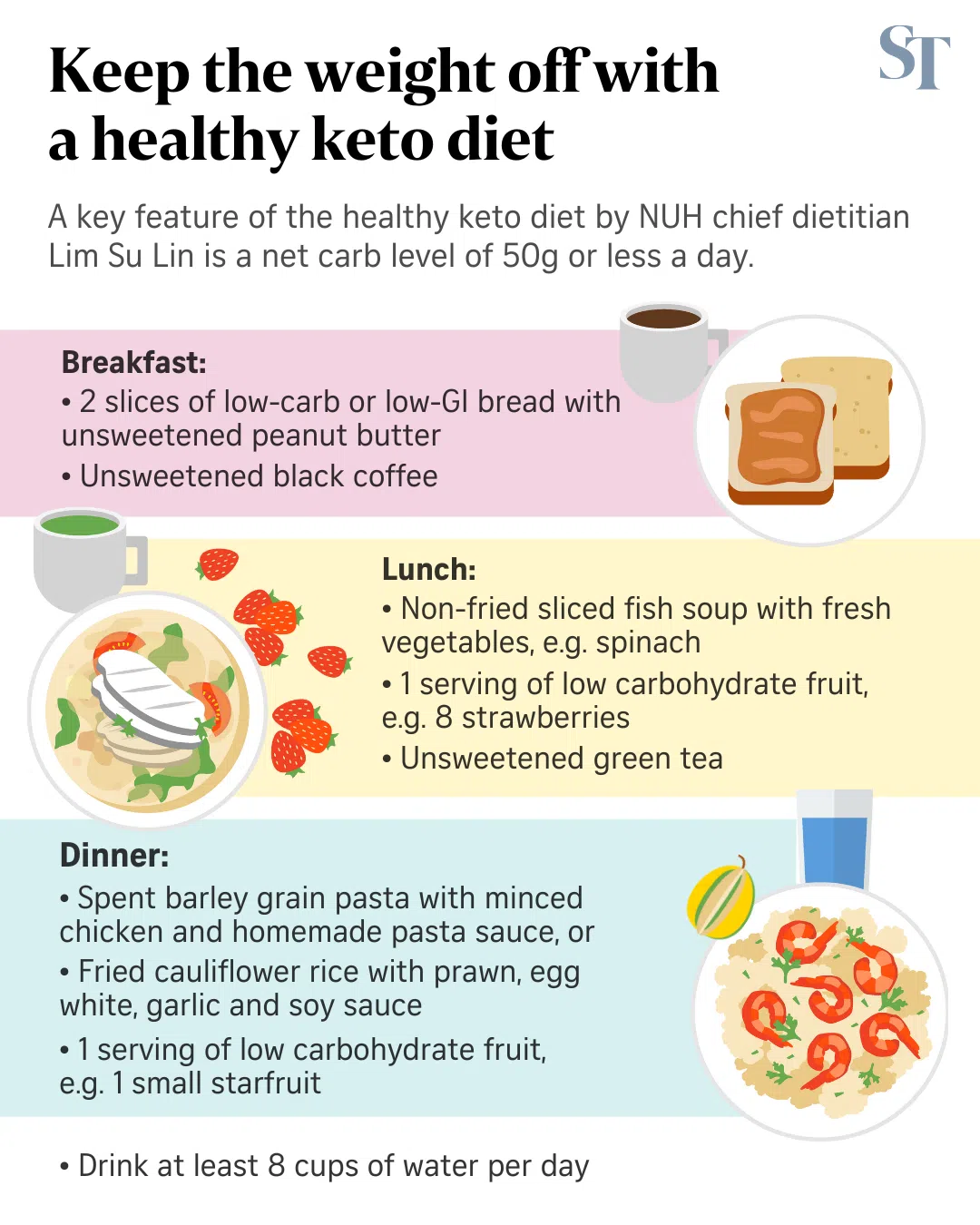askST: Why is the keto diet popular for weight loss? Is it safe?
Sign up now: Get ST's newsletters delivered to your inbox

The keto diet is a strict high-fat, moderate-protein and low-carbohydrate diet.
PHOTO: ISTOCKPHOTO
SINGAPORE – National University Hospital’s (NUH) chief dietitian Lim Su Lin recently developed a healthy version of the ketogenic diet
Preliminary results show that those who follow her programme closely can lose up to 25kg in four months, as well as reduce blood pressure and control diabetes.
Here is a quick look at what a standard keto diet constitutes and the risks involved.
What is the keto diet?
It is a strict high-fat, moderate-protein and low-carbohydrate diet. By cutting down on carbohydrate intake, your body is induced to enter a state known as ketosis where it breaks down stored fat instead of carbohydrates to produce energy.
In other words, the body is “tricked” into burning fat as fuel, which helps with weight loss. However, this is an individualised process, meaning that some people will require a more restrictive diet to induce ketosis.
Popular keto diets suggest an average of 70 to 80 per cent fat, 5 to 10 per cent carbohydrate and 10 to 20 per cent protein.
According to the Harvard T. H. Chan School of Public Health, this translates to about 165g of fat, 40g of carbohydrate and 75g of protein for a 2,000-calorie diet.
But Dr Lim’s programme keeps fat consumption at less than 50 per cent of total daily energy, and also restricts calories based on the person’s profile.
Why is the diet so popular?
On paper, the diet involves burning fats by eating more of them, allowing people to eat high-fat foods that they enjoy such as red meats, fatty fish, cheese and nuts, while still losing weight.
It is also generally seen as a more sustainable weight loss plan as fat and protein take a longer time to break down, keeping people full for a longer period of time.
Is it safe?
There are risks involved in following the keto diet.
At the top of the list is that it can result in a high intake of unhealthy fats – from eating too much processed food, for example – which can increase bad cholesterol levels and the risk of heart disease.
According to the Gleneagles Hospital website, common side effects of putting your body through ketosis include bad breath, constipation, indigestion and low blood sugar. In the first few days of the diet, you may also experience nausea, insomnia and a general feeling of being unwell.
People with underlying health conditions, particularly those involving the liver or kidneys, need to be cautious about following such a diet as it could put additional strain on these organs.

What is the NUH trial about?
The trial, which started in mid-2021, involves 80 participants who are National University Health System staff. They all had a body mass index of more than 27.5, which exceeds the healthy range of between 18.5 and 24.9.
One group was assigned the healthy keto diet that Dr Lim designed, while the other group had to follow a standard low-fat, calorie-restricted diet.
Over a period of six months, the healthy keto group lost an average of 7.4kg per person, while the other group lost an average of 4.2kg per person. Notably, those in the healthy keto group also saw a drop in cholesterol levels.
Dr Lim’s healthy keto diet emphasises healthy fats, such as those found in nuts, seeds, avocados, fatty fish and unsaturated oils, which do not increase bad cholesterol levels. Her calorie-restrictive programme also includes lean protein, non-starchy vegetables and low-carbohydrate fruits.
Said Dr Lim: “Keto diets are popular and yet often unsafe. Through this new method, we hope to provide patients with an effective way to achieve their weight loss goals without compromising cardiovascular health.”



